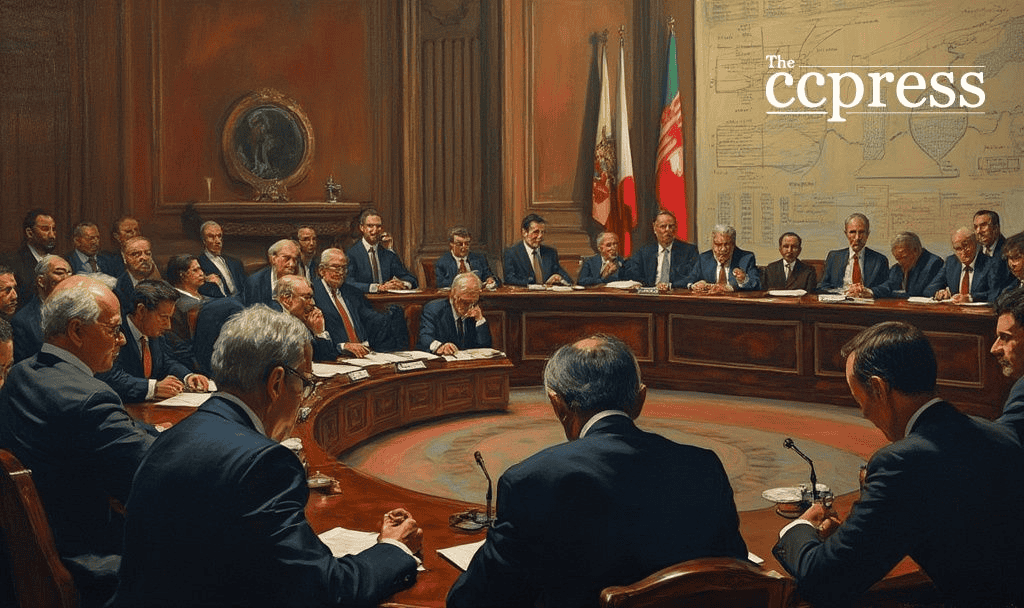- Concerns over tariffs, impacts on global trade; potential economic destabilization.
- Market volatility surged, influencing equities and cryptocurrencies.
- IMF calls for diplomatic resolutions to reduce global uncertainty.

In April 2025, the International Monetary Fund (IMF) expressed concerns from Washington D.C. regarding former President Donald Trump’s tariffs, highlighting potential global economic risks.
IMF’s warning highlights possible destabilization due to Trump’s tariffs, urging diplomatic resolutions to reduce geopolitical tensions.
IMF has expressed serious concerns over Trump’s recent tariffs, labeling them a significant risk to the global economy. “It is important to avoid steps that could further harm the world economy,” said Kristalina Georgieva, Managing Director of the IMF. Challenges include disruptions to global trade and potential inflation spikes. These tariffs arrive amid a fragile recovery phase, amplifying existing uncertainties.
Key players in this scenario include former President Donald Trump, the architect of the tariffs, who defends them as a means to bolster domestic manufacturing. Kristalina Georgieva, Managing Director of the IMF, has publicly criticized these tariffs, urging diplomatic solutions to preserve economic stability.
Markets have reacted sharply to these developments, with the S&P 500 experiencing a significant drop. Global markets like Japan’s Nikkei Index followed suit, and the crude oil market and the U.S. dollar also saw declines. Bitcoin, however, showed resilience, bucking the broader negative trend.
Financial implications include potential stimulus measures by central banks to counteract tariff-induced inflation. Investor focus has shifted towards cryptocurrencies, with some experts viewing them as a hedge. Larry Fink of BlackRock highlighted this shift, noting risks to U.S. economic influence.
Historical precedents, such as the U.S.-China trade war, have shown similar patterns, with Bitcoin gaining traction amid market upheavals. The IMF’s stance emphasizes the need for global cooperation to mitigate the adverse effects of protectionist policies.
These events signal broader economic uncertainties. Experts suggest increased interest in cryptocurrencies as alternative assets during volatile periods. Market observers question whether Bitcoin and similar digital assets might strengthen their roles as refuge options in future economic tensions.
